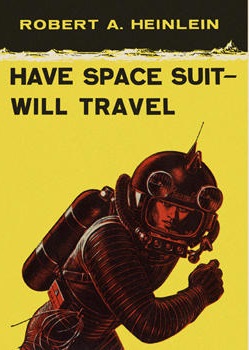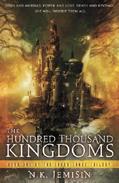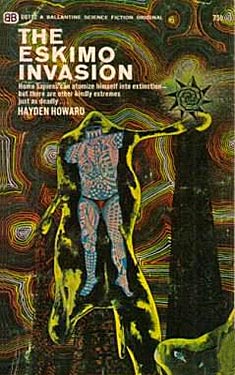I can't stick with SF all the time, and I just finished 'Those Guys have all the Fun' by James Andrew Miller and Tom Shales, the behind the scenes story of ESPN. Someone got me the complete '30 for 30' documentary series and the book came with it. I picked it up and read the first page and just couldn't put it down. It was pretty good, especially the first half. Just the general description of how business was done in the early '70's is worth a glance. So much booze, so much booze. The book was written entirely as excerpts from interviews, so the story is told entirely through the words of the people who lived it. I guess this is becoming a more common style of writing but I'd never seen it before. It makes for some interesting reading, especially when you have one guy say, "I hated that guy, he's an ass" immediately followed by the other person saying, "We always got along, I really liked him." I won't write a review of the book or anything, but I did enjoy it.
Sometimes when I have a lot of new books to choose from like I do now, thanks Christmas, I let my wife choose my next book for me. Her criteria for choosing can be a little suspect, she chose 'The Wanderer' for me because it was written by a guy named 'Fritz' and more than once she has chosen a book just because she got tired of seeing it on my shelf. I let her choose my next book so it looks like 'Anansi Boys' by Neil Gaiman. I'm not as large of a Gaiman fan as some people are, and I really don't understand where the crazy devotion comes from. Of course I haven't read the Sandman series, so maybe if I'd read that I'd feel differently. I didn't really like 'American Gods' but I thought 'The Graveyard Book' was outstanding. So hopefully Anansi is alright.
I put up a review for 1959 Hugo Nominee 'Have Spacesuit- Will Travel.' A sort of rousing young adult adventure. I read it a long time ago. There's going to be quite a few reviews like this as I knock more novels off the list of Hugo and Nebula Nominees. Books I read a long time ago but don't intend to read again just to write a review on. So for these books I'll just sort of give my impression of them, and I'll try to indicate that my knowledge of the book isn't that up to date. I already did this with 'Starship Troopers' and I'll have to do this with almost all of Heinlen's work as I read most of it when I was a teenager.
I still intend to write a full review of Kim Stanley Robinson's Mars Trilogy. It just turns out that writing that review isn't as easy as I thought it would be.
Sometimes when I have a lot of new books to choose from like I do now, thanks Christmas, I let my wife choose my next book for me. Her criteria for choosing can be a little suspect, she chose 'The Wanderer' for me because it was written by a guy named 'Fritz' and more than once she has chosen a book just because she got tired of seeing it on my shelf. I let her choose my next book so it looks like 'Anansi Boys' by Neil Gaiman. I'm not as large of a Gaiman fan as some people are, and I really don't understand where the crazy devotion comes from. Of course I haven't read the Sandman series, so maybe if I'd read that I'd feel differently. I didn't really like 'American Gods' but I thought 'The Graveyard Book' was outstanding. So hopefully Anansi is alright.
I put up a review for 1959 Hugo Nominee 'Have Spacesuit- Will Travel.' A sort of rousing young adult adventure. I read it a long time ago. There's going to be quite a few reviews like this as I knock more novels off the list of Hugo and Nebula Nominees. Books I read a long time ago but don't intend to read again just to write a review on. So for these books I'll just sort of give my impression of them, and I'll try to indicate that my knowledge of the book isn't that up to date. I already did this with 'Starship Troopers' and I'll have to do this with almost all of Heinlen's work as I read most of it when I was a teenager.
I still intend to write a full review of Kim Stanley Robinson's Mars Trilogy. It just turns out that writing that review isn't as easy as I thought it would be.









